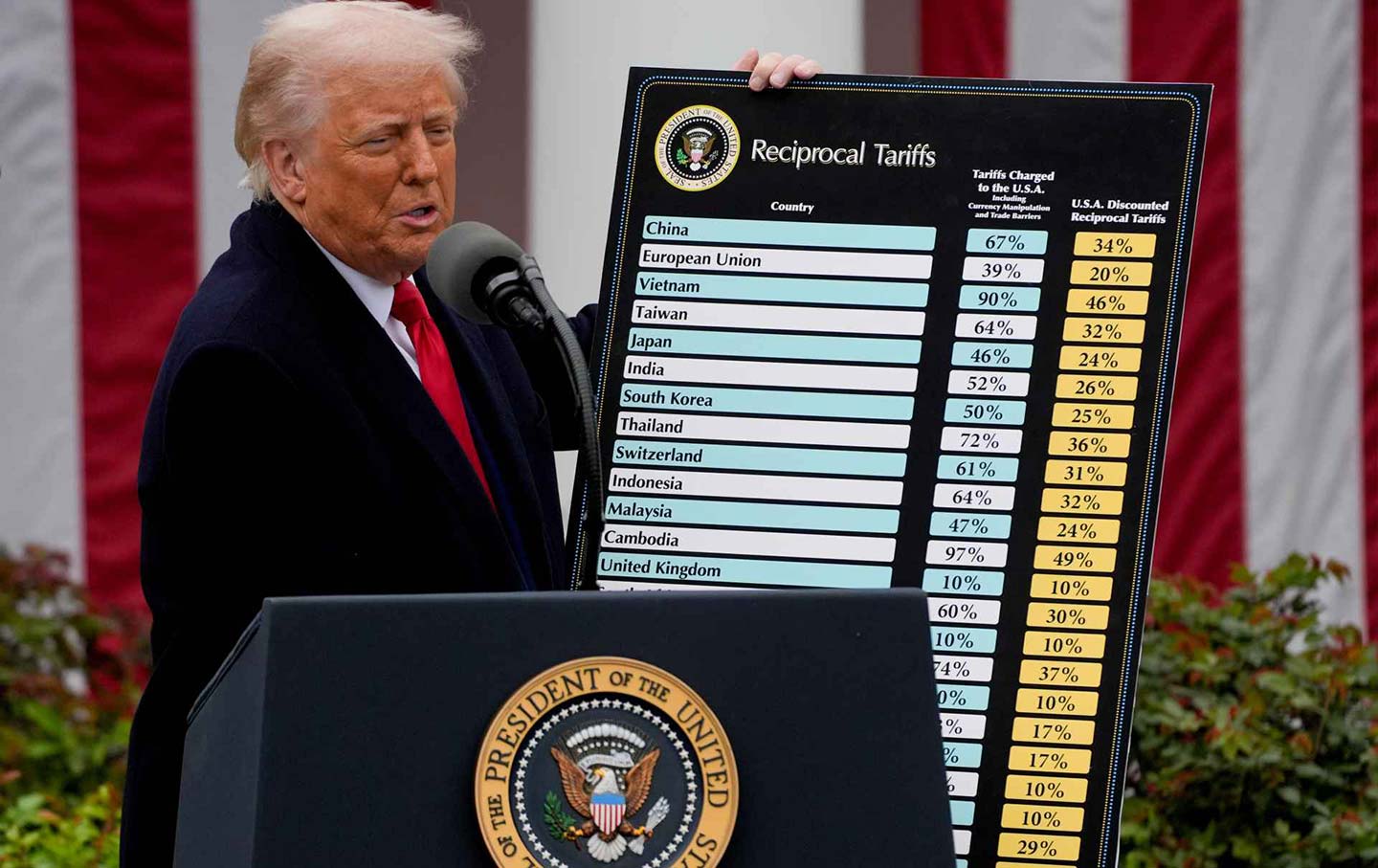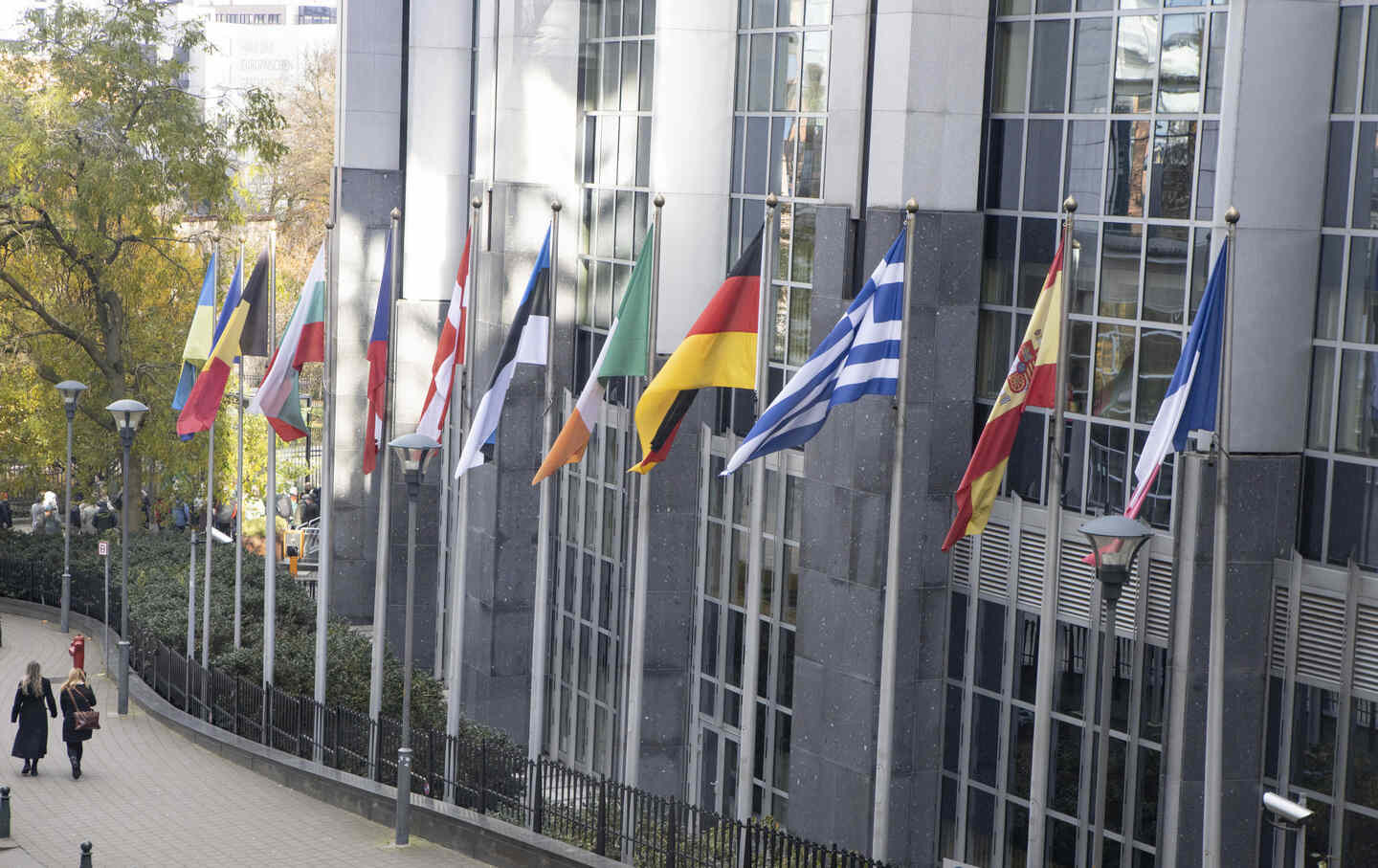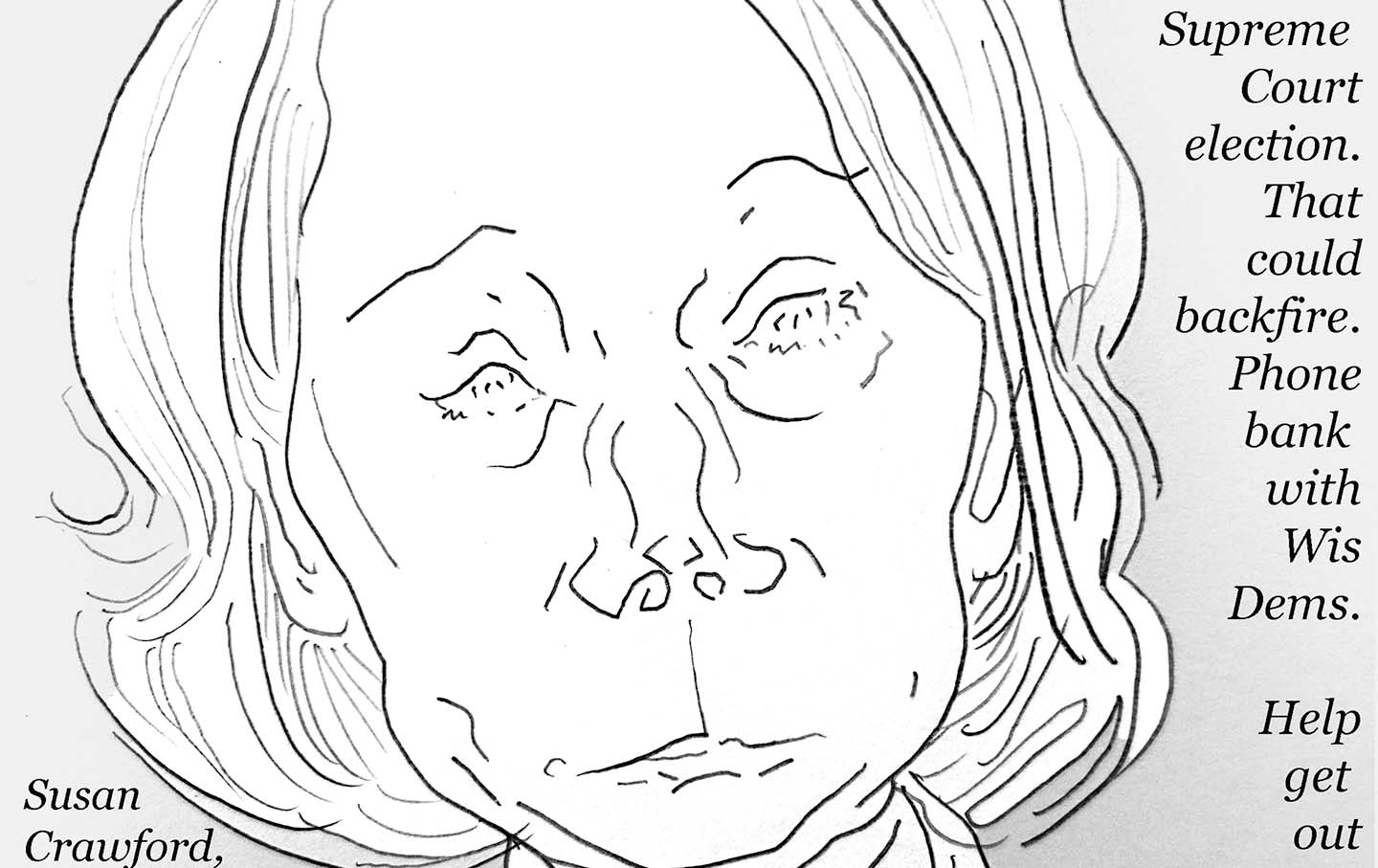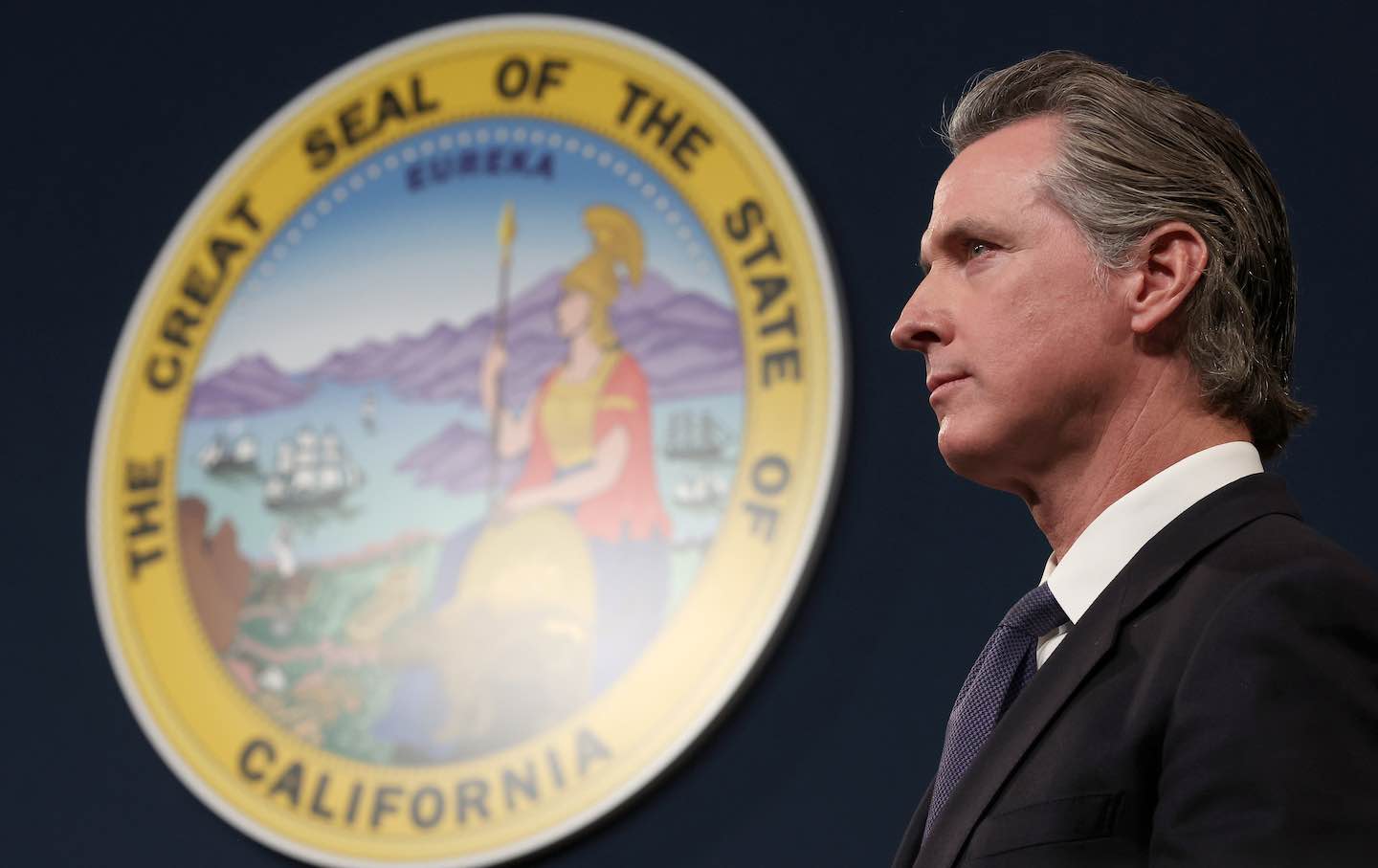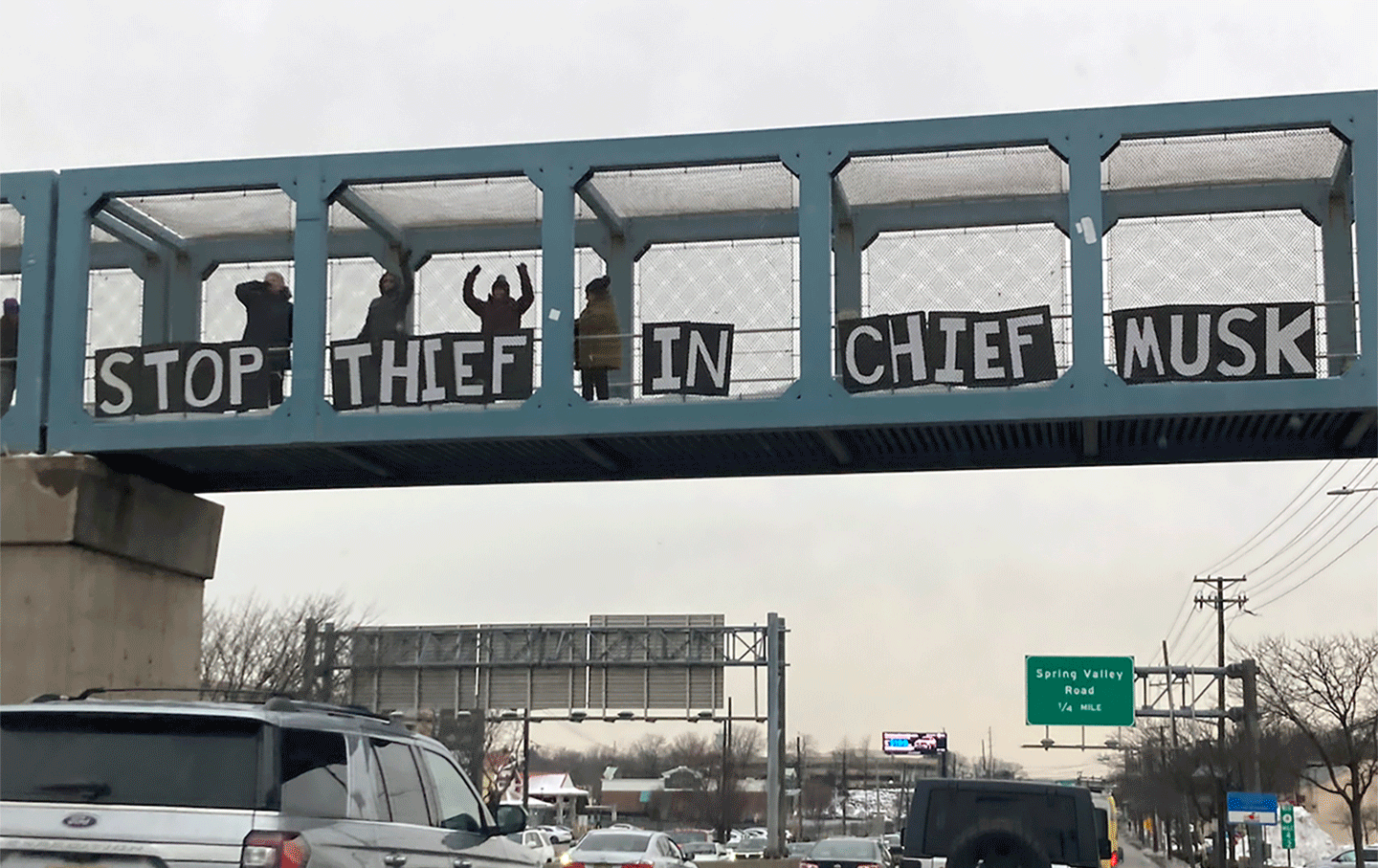Trump’s Going to Hate Milwaukee Even More After Its Voters Crush Him in November
The Republican nominee called the city hosting his party’s convention “horrible.” Just wait until Milwaukeeans get to show him how they feel about that.
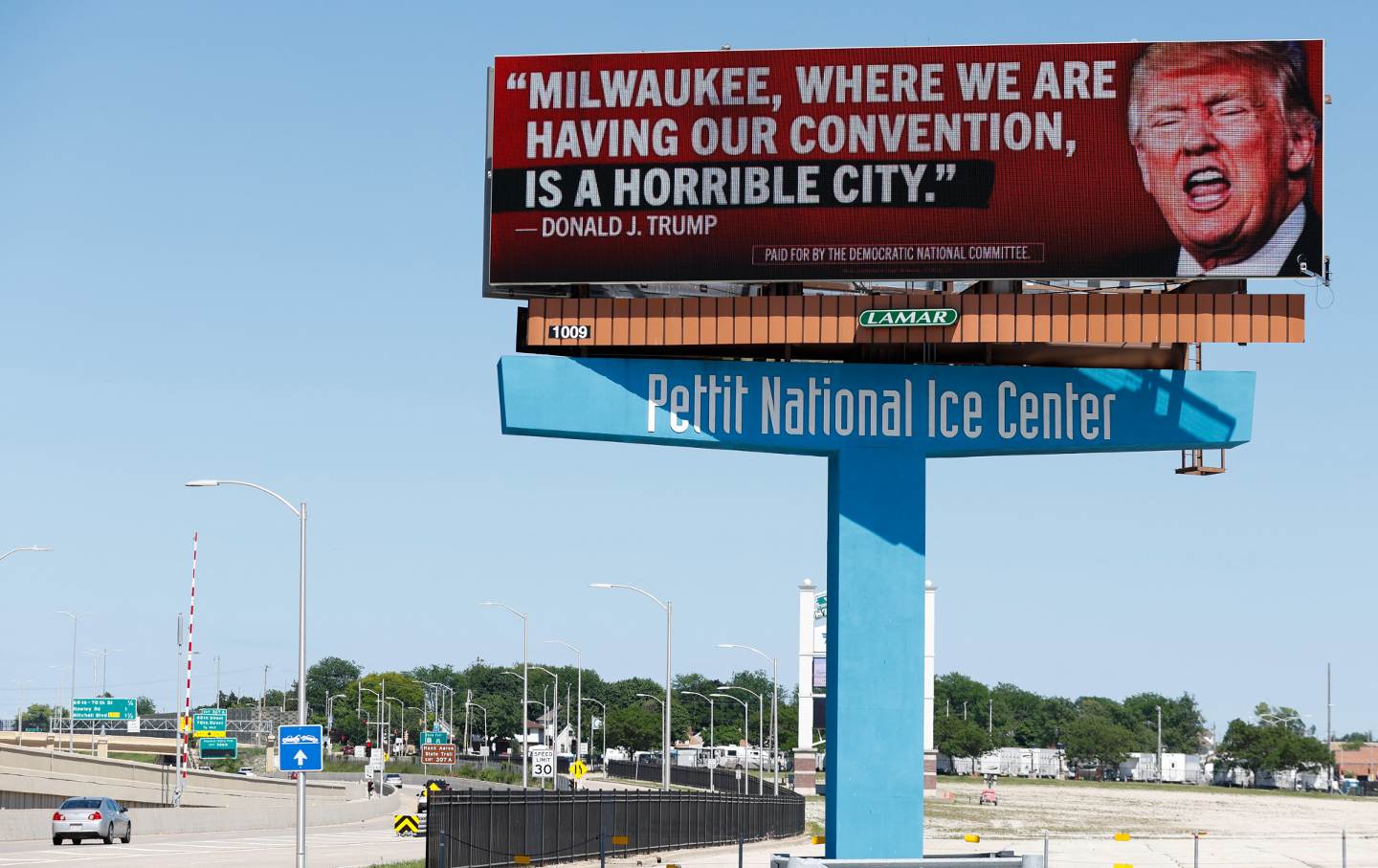
A billboard launched by the Democratic National Committee in 10 Milwaukee locations shows Donald Trump criticizing the city that will host the Republican National Convention in July.
(Kamil Krzaczynski / AFP via Getty Images)Alice Cooper showed proper respect for Milwaukee in the 1992 film Wayne’s World when public-access TV hosts Wayne Campbell (Mike Myers) and Garth Algar (Dana Carvey) got ahold of backstage passes and encountered the rocker after a show in the Brew City.
“So, do you come to Milwaukee often?” asked Wayne. Cooper replied, “Well, I’m a regular visitor here, but Milwaukee has certainly had its share of visitors. The French missionaries and explorers were coming here as early as the late 1600s to trade with the Native Americans.” Legendary guitarist Pete Friesen, a member of Cooper’s band, piped up: “In fact, isn’t ‘Milwaukee’ an Indian name?” “Yes, Pete, it is,” answered Cooper, who explained, “Actually, it’s pronounced ‘mill-e-wah-que,’ which is Algonquin for ‘the good land.’”
“I was not aware of that,” responded Wayne. “I think,” Cooper continued, “one of the most interesting aspects of Milwaukee is the fact that it’s the only major American city to have ever elected three socialist mayors.”
“Does this guy know how to party or what!” Wayne exclaimed.
Cooper’s referencing of Milwaukee’s heritage as a city with a great track record of working-class politics came to mind last week, after former president Donald Trump informed Republican members of Congress that “Milwaukee, where we are having our convention, is a horrible city.”
Republicans are bringing delegates and alternates from 56 states and territories to Wisconsin’s largest city from July 15 to 18, in order to coronate—or, technically, nominate—Trump for the presidency. Local officials, pretty much all of whom are Democrats, have gone out of their way to be polite to their guests. It’s called “Wisconsin nice,” which is to say that, even if you don’t like someone, you try to find a way to be charitable toward them. But even the nicest Milwaukeeans had trouble brushing off Trump’s wildly ungracious remarks. His slander of the city inspired expressions of hometown loyalty that left no doubt as to where these Wisconsinites stand with regard to the former president.
Noting Trump’s recent conviction on charges of criminal wrongdoing in New York—along with his upcoming trials on dozens of additional counts—US Representative Gwen Moore (D-Milwaukee) said, “I don’t know many people in Milwaukee who have 34 felony counts against them. So our crime rate is going to go up when he joins us in Milwaukee.”
Milwaukee Mayor Cavalier Johnson, who for months has made it his mission to let Republicans know they are welcome in the overwhelmingly Democratic city, called Trump’s remarks “bizarre” and “unhinged” and said, “If Donald Trump wants to talk about things that he thinks are horrible, all of us lived through his presidency, so right back at you, buddy!”
Republicans have a long history of hating on Milwaukee—which did, in fact, elect three highly regarded Socialist Party mayors in the 20th century (Emil Seidel, Dan Hoan, and Frank Zeidler), along with a Socialist Party member of Congress, a Socialist sheriff, a Socialist city attorney, Socialist-led city councils and school boards, and a large Socialist delegation to the state legislature. In fact, when Democrats decided to hold their national convention in the city in 2020, Wisconsin Republicans bashed their rivals for the decision. “No city in America has stronger ties to socialism than Milwaukee,” griped Wisconsin Republican Party Director Mark Jefferson. “And with the rise of Bernie Sanders and the embrace of socialism by its newest leaders, the American left has come full circle. It’s only fitting the Democrats would come to Milwaukee.” US Senator Ron Johnson (R-WI) said the Milwaukee convention would provide a “firsthand look” at “the risk of Democrat socialistic tendencies.”
With no sense of irony whatsoever, the Republicans decided four years later to decamp to Milwaukee. They didn’t choose to convene in the city because they liked the multiracial, multiethnic community that sends progressive Democrats to the Wisconsin statehouse and the nation’s Capitol in Washington, DC. Rather, GOP strategies wanted to hold their convention in the ultimate battleground state—four of the last six presidential elections in the Badger State have been decided by under 25,000 votes—and Milwaukee was the only city with enough hotel rooms to begin to accommodate the tens of thousands of delegates, alternates, journalists, and political hangers-on who show up for a national party gathering.
The theory was that, even though Republicans don’t like Milwaukee, they could take advantage of the city’s accommodations, along with a fabulous lakefront setting that has become a major draw for tourists and that, just weeks before the GOP convention, will host Summerfest, the annual cavalcade of rock, soul, blues, and jazz concerts that is recognized as “the world’s largest music festival.” If all went well, the Republicans figured, they could get lots of good publicity, and maybe even some good feeling, in a state that Trump has to win in November.
Trump’s trash-talking of the city upended that plan. And Republicans from Wisconsin then made things worse, as GOP members of the state’s congressional delegation tried to cover for their soon-to-be nominee with conflicting explanations of what Trump was trying to say.
In an absurd illustration of the extent to which Republicans care more about pleasing their cult leader than about defending their own states, GOP House members claimed that Trump didn’t say what he said, that he was taken out of context, that he was commenting on crime in the city, that he was accusing city officials of engaging in election fraud, and, in some cases, all of the above. Never mind that crime is down in Milwaukee and that the city’s elections in 2020—the year of Trump’s obsession—were counted, recounted, certified, and approved by election officials and the courts. And never mind that “horrible” is one of the most clearly derogatory words in the English language. “As I heard all the responses from the Republicans who were in the room, they were twisting themselves in so many different ways that it kind of reminded me of a pretzel,” said Mayor Johnson.
The most twisted Republican response may well have been that of US Representative Glenn Grothman, who went all the way down the “dear leader” rabbit hole for Trump. “He said nothing that I consider to be a criticism of Milwaukee, other than that we’ve got to get more of them to be voting Republican in the future,” declared Grothman, a Republican who represents several suburban Milwaukee counties.
Unfortunately for Grothman and Trump, honest listeners heard the former president’s remark as the criticism that it was. “In Wisconsin, we’re a purple state, and statewide elections are decided on a razor-thin margin. And so for the former president to call Milwaukee a ‘horrible’ place, that’s insulting the home to roughly 50,000 people who vote Republican here in this city—who have been here for a long time, who are raising their kids in the city, who spend time at all the places in Milwaukee, who are integral members to our community right here in Milwaukee,” explained Mayor Johnson. “To call their home ‘horrible’ is not the right move. It’s kind of bizarre. So, I think, a state that’s decided on a razor’s edge, that may ultimately cost Donald Trump the election.”
Popular
“swipe left below to view more authors”Swipe →The repercussions from Trump’s remark have the potential to do serious political damage to the former president and his party. Trump’s remarks won’t merely cause some of Milwaukee’s Republican-leaning voters to think twice about casting a GOP ballot in November—perhaps leading some to back Biden, while others sit the election out. They should also help to mobilize the Democratic-leaning voters Biden needs in November.
A boost in Milwaukee’s Democratic turnout, based on hometown pride and a healthy disdain for the candidate who called the city “horrible,” could have a substantial impact on November calculations in Wisconsin. That’s because, when Milwaukee is mobilized, it often plays a big role in tipping the statewide balance toward the Democrats. In 2012, the last time a Democratic president was bidding for reelection, 289,232 Milwaukeeans voted and Barack Obama received 79.27 percent of the total. Milwaukee’s Obama votes outpaced the Democratic president’s statewide margin of victory that year—exactly the sort of insurance Biden needs.
In 2016, however, turnout in Milwaukee fell by over 40,000 votes, and Democrat Hillary Clinton’s percentage of the overall vote in the city fell three points. Her raw vote in the city was almost 39,000 below that for Obama in 2012. Clinton lost Wisconsin in 2016 by 22,748 votes statewide.
In 2020, turnout in Milwaukee was marginally higher than in 2016, and Biden’s percentage in the city bumped up two points. In combination with boosted Democratic voting in surrounding Milwaukee County—where Biden’s percentage was four points better than Clinton’s, and where the Democratic total spiked by almost 30,000 votes from 2016 to 2020—Biden got a needed boost from Wisconsin’s most populous city and county. He won statewide by 20,682 votes.
What happens if Milwaukee Democrats can boost turnout in 2024? What happens if a combination of concern about the fate of the republic and hometown pride brings a 2012-level turnout for Joe Biden and against the Republican who called the city “horrible”?
Noting Trump’s comment, along with this fall’s election date, Milwaukee County Executive David Crowley says of the former president, “He’s really going to think we’re horrible after November 5th.”

